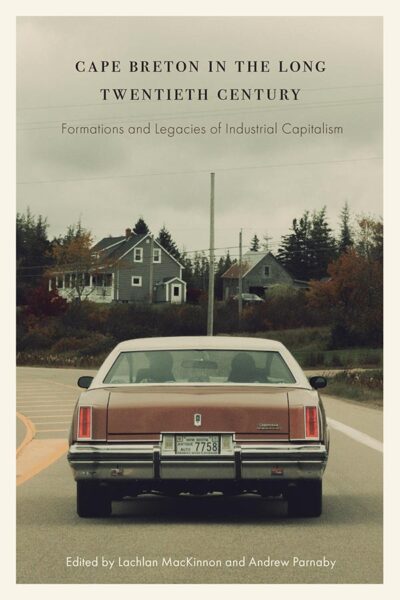The emergence, dominance, and alarmingly rapid retreat of modernist industrial capitalism on Cape Breton Island during the “long twentieth century” offers a particularly captivating window on the lasting and varied effects of deindustrialization. Now, at the tail end of the industrial moment in North American history, the story of Cape Breton Island presents an opportunity to reflect on how industrialization and deindustrialization have shaped human experiences. Covering the period between 1860 and the early 2000s, this volume looks at trade unionism, state and cultural responses to deindustrialization, including the more recent pivot towards the tourist industry, and the lived experiences of Indigenous and Black people. Rather than focusing on the separate or distinct nature of Cape Breton, contributors place the island within broad transnational networks such as the financial world of the Anglo-Atlantic, the Celtic music revival, the Black diaspora, Canadian development programs, and more. In capturing the vital elements of a region on the rural resource frontier that was battered by deindustrialization, the histories included here show how the interplay of the state, cultures, and transnational connections shaped how people navigated these heavy pressures, both individually and collectively.
About the Editors
Lachlan MacKinnon is the Canada Research Chair (Tier II) in Post-industrial Communities and an associate professor of History at Cape Breton University. His recent book, Closing Sysco: Industrial Decline in Atlantic Canada’s Steel City, examined the structural decline of the steel industry in Cape Breton, Nova Scotia. Andrew Parnaby is an associate professor of History and dean of Arts and Social Sciences at Cape Breton University. He is the author of Secret Service: Political Policing in Canada from Fenians to Fortress America, with Reg Whitaker and Gregory S. Kealey, which received the Canada Prize in the Social Sciences by the Federation for the Humanities and Social Sciences in 2013.
With contributions by Claudine Bonner, Ken Donovan, David Frank, Ronald Labelle, Will Langford, Del Muise, Don Nerbas, John G. Reid, Anne-Louise
Semple, Heather Sparling, and Martha Walls.
Table of Contents
- Acknowledgements
- Introduction
- Part 1. Formations
- 1. Empire, Colonial Enterprise, and Speculation: Cape Breton’s Coal Boom of the 1860s / Don Nerbas
- 2. “The Grand Old Game”: The Complex History of Cricket in Cape Breton, 1863 to 1914 / John G. Reid
- 3. Bridging Religion and Black Nationalism: The Founding of St. Philips African Orthodox Church and the Universal Negro Improvement Association Hall in Whitney Pier, 1900–1930 / Claudine Bonner
- 4. An Invisible Minority: Acadians in Industrial Cape Breton / Ronald Labelle
- 5. The Disposition of the Ladies: Mi’kmaw Women and the Removal of Kun’tewiktuk / King’s Road Reserve, Sydney, Nova Scotia / Martha Walls
- Part 2. Legacies
- 6. C. B. Wade, Research Director and Labour Historian, 1944–50 / David Frank
- 7. “Everybody Was Crying”: Ella Barron, Dutch War Bride in Amsterdam and Ingonish, Cape Breton, 1923–2023 / Ken Donovan
- 8. Twenty-First-Century Uses for Twentieth-Century Nova Scotia Gaelic Song Collections: From Language Preservation to Revitalization and the Articulation of Cultural Values / Heather Sparling
- 9. Industrial Crisis and the Cape Breton Coal Miners at the End of the Long Twentieth Century, 1981–86 / Lachlan MacKinnon
- 10. The Great Spawn: Aquaculture and Development on the Bras d’Or Lake / Will Langford
- 11. From Artifact to Living Cultures: Cape Breton’s Tourism History and the Emergence of the Celtic Colours International Festival / Anne-Louise Semple and Del Muise
- Afterword: Cape Breton as Microcosm of Capitalist Modernity / Alvin Finkel
- List of Contributors
This work is licensed under a Creative Commons License (CC BY-NC-ND 4.0). It may be reproduced for non-commercial purposes, provided that the original author is credited.
